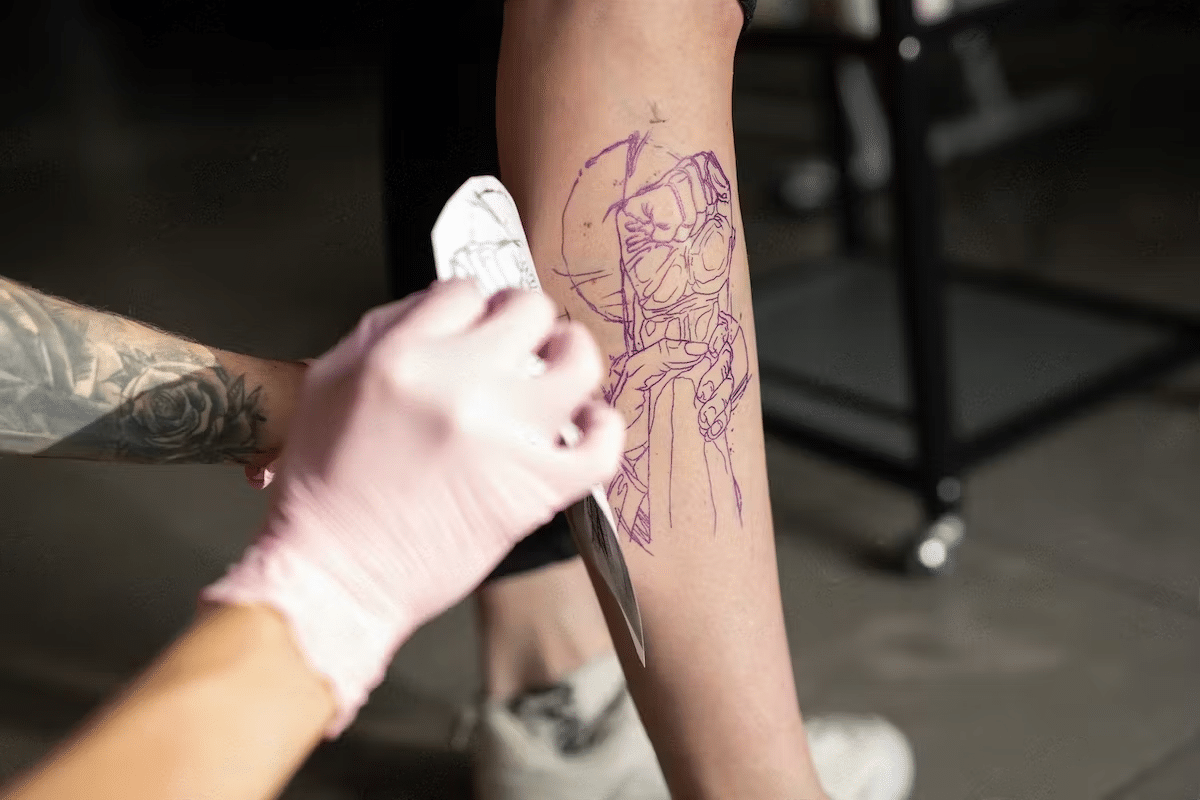
Tattoo pain is an inevitable part of getting a tattoo. It’s important to understand what to expect when you get a tattoo and how to prepare for it so that you can minimise the discomfort.
This article will discuss the causes of tattoo pain, tips and tricks on how to prepare for it, and what you can do to minimise the discomfort. Ultimately, being prepared for your tattoo experience will help ensure it is as enjoyable as possible.
Here are some tips on how to reduce tattoo pain:
1. Control Your Breathing
Controlling your breathing is a useful technique to reduce tattoo pain. When you focus on your breathing, you can distract yourself from the pain and also regulate your body’s response to it. Here’s how to do it:
Take Slow, Deep Breaths
Inhale slowly through your nose, hold for a few seconds, and then exhale slowly through your mouth. Focus on breathing deeply and evenly.
Count Your Breaths
You can count your breaths as you inhale and exhale. This can help you stay focused and mindful.
Sync Your Breathing With The Tattoo Needle
As the tattoo needle is working on your skin, try to sync your breathing with its movement. Inhale as the needle touches your skin, hold your breath for a second, and exhale as the needle moves away.
Visualise The Pain Leaving Your Body
As you exhale, imagine that you’re releasing the pain from your body. You can picture the pain as a cloud or a wave that’s leaving your body with each exhale.
By controlling your breathing, you can help reduce the perception of pain during the tattoo process. It’s also a good way to stay calm and centred during what can be an intense experience.
2. Distract Yourself

Distraction is another effective technique to reduce tattoo pain. Here are some ways to distract yourself during the tattoo process:
Listen To Music
Bring your favourite music or a playlist to listen to during the tattoo session. This can help you relax and focus on something other than the pain.
Engage In Conversation
Chatting with your tattoo artist or a friend with you can help take your mind off the pain. Just be careful not to move too much while talking.
Play A Game
Some tattoo studios have games available to play, such as cards or board games. This can be a fun way to distract yourself and pass the time.
Focus On Your Surroundings
Take in your surroundings and focus on the details around you. Look at the artwork on the walls or the decorations in the studio. This can help take your mind off the pain.
Bring A Book Or A Movie
If the tattoo studio allows it, you can bring a book or a movie to distract yourself. Just make sure it’s something that won’t require too much movement or attention.
By distracting yourself, you can reduce your perception of pain during the tattoo process. It’s important to find what works best for you, so feel free to experiment with different distractions to find what suits you the most.
3. Consider Numbing Treatments
Numbing treatments are another option to reduce tattoo pain. Here are some numbing treatments that you can consider:
Numbing Cream
A topical numbing cream can be applied to the skin before the tattoo session. The cream works by numbing the nerve endings in the skin and reducing pain. It’s important to talk to your tattoo artist before using a numbing cream, as some creams can affect the quality of the tattoo.
Numbing Spray
A numbing spray can also be used to reduce tattoo pain. The spray is applied to the skin and works by cooling and numbing the area. Like numbing cream, it’s important to discuss the use of a numbing spray with your tattoo artist before the session.
Numbing Injections
Numbing injections can be administered by a healthcare professional before the tattoo session. The injection contains a local anaesthetic that numbs the area and reduces pain.
This method is more invasive than using a cream or spray and is generally reserved for larger tattoos or more sensitive areas.
It’s important to keep in mind that numbing treatments can have side effects and risks, so it’s essential to talk to your tattoo artist and healthcare provider before using any numbing treatments. They can advise you on the best option for you and help you understand the risks and benefits of each method.
4. Eat And Stay Hydrated
Eating before the tattoo session can help prevent low blood sugar, which can make you feel lightheaded and increase pain perception. Make sure to have a light meal or snack before the session, such as fruit, nuts, or a sandwich.
Eating during the tattoo session can also help distract you from the pain. Some people bring snacks or energy drinks to keep their energy levels up during longer sessions.
Staying hydrated can help keep your skin healthy and plump, which can reduce pain during the tattoo process. Drink plenty of water before and during the session to keep your body hydrated.
Dehydration can also make the skin more sensitive, which can increase pain perception during the tattoo process. So, it’s essential to drink water and avoid alcohol or caffeine before the session, as they can dehydrate your body.
Conclusion
Remember, getting a tattoo is a personal choice, and pain tolerance varies from person to person. While there are ways to reduce the pain, it’s important to keep in mind that some discomfort is normal during the process.
FAQ
What pain relief to take before getting a tattoo?
Don’t take painkillers before getting a tattoo—painkillers like Advil and Ibuprofen thin the blood, which will lead to similar issues that alcohol has. Acetaminophen may potentially be fine to take but should be discussed with the artist beforehand.
What makes tattoo pain worse?
The longer the tattoo session takes, the longer your skin is taking the beating. The larger the tattoo, the more discomfort that may be experienced, as bigger tattoos involve more needles, ink, and session time.
How long until the tattoo stops hurting?
An average tattoo will hurt for around three days, as this is when the healing process is starting. However, it can continue to be sore and tender for up to two weeks. If you are concerned about tattoo pain or worried about infection, you should speak to your tattoo artist for advice.




